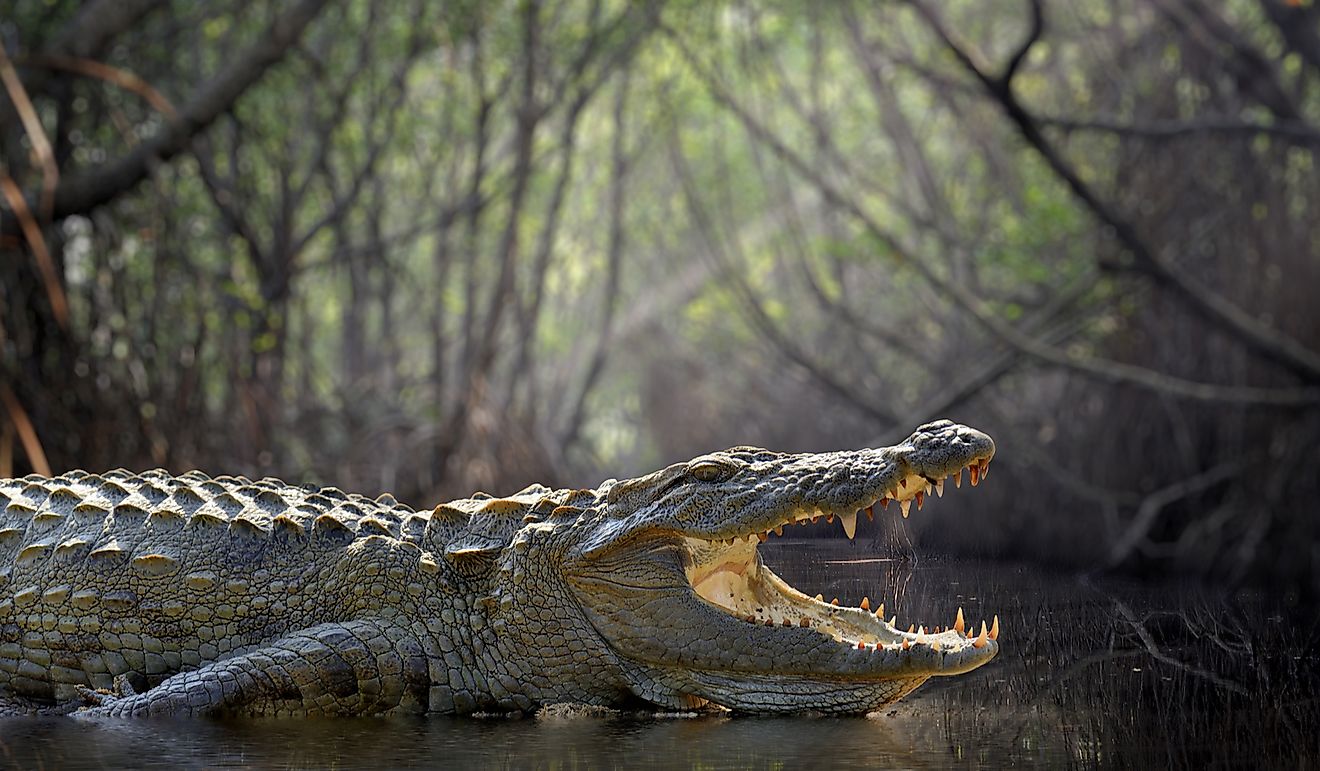What Is The Difference Between A Crocodile And An Alligator?

Many people are not aware that crocodiles and alligators are not the same animals, and there is a tendency to use both labels to describe any big-tooth lizard that spends the majority of its time in the water. Despite their apparent similarities, there are plenty of differences between these two animals, both in their appearance as well as their behavior and habitat.
Alligators and Crocodiles Live In Different Locations
Crocodiles can be found in more locations around the world compared to an alligator. If you’re traveling anywhere from Australia, Southeast Asia, Africa, Central, South, or North America, you’ll probably be correct in saying that you have encountered a crocodile. Alligators, on the other hand, can only be found in eastern China and the southeast of the United States. However, when in the US, chances are you’ll come across an alligator before you ever see a crocodile. There are proximately 3 million alligators in the States, while the number for crocodiles goes only up to 2000. Even so, in Southern Florida, crocodiles and alligators do live in the same place, and it is the only such place in the world.
Do They Live In Saltwater Or Freshwater?
Crocodiles can spend a long time in saltwater. We are talking weeks at a time. This is due to their ability to remove excess salt from their organs by employing specialty glands located in their tongues. Even though alligators also posses the same glands, their ability to excrete salt is somewhat diminished. They tend to occupy freshwaters for this reason, although they are sometimes found in brackish waters, which is a mix of fresh and saltwater.

The Differences In Snout Shape
Alligators and crocodiles might look the same to an untrained eye, but the truth is that it is really easy if you pay attention to their snout. The easiest way to distinguish them is by comparing their snout shape. Alligators typically have a U-shaped, broad snout, while crocodiles have an elongated snout in the form of the letter V. Given that crocodiles usually feed on mammals and fish, their snouts are not as strong as those of alligators which are built to crack through the hard shells of turtles and similar prey.
Jaw And Teeth Structure
Aside from the snout shape as mentioned above, crocodiles and alligators also look very different when their mouths are closed. In the case of the alligator, none of the bottom teeth will be visible with its mouth closed, while the crocodile will always be showing its lower fourth tooth. They also typically show many of their teeth as they stick out over their lips. The reason the teeth cannot be seen when an alligator has its mouth closed if because of the width of its upper jaw, which is wider than the lower and in turn, hides all of the teeth. Another difference is the shape of the teeth itself, where crocodiles have pointy teeth, alligators’ teeth are rounder.
Color Differences
Adult crocodiles are usually tan or brown, while the alligators typically have a color that is dark gray to black. The reason for these differences is found in their chosen habitat. The darker waters like swamps will have alligators that also have a darker color themselves. Crocodiles that are found in lighter environments will tend to follow suit. The color that matches their surroundings offers the advantage of being able to blend into the environment, which is especially handy when hunting for prey.
Lifespan, Length, And Weight
Adult alligators can live anywhere between 30 and 50 years. If that seems long, it will surprise you that crocodiles have the upper hand in this aspect too: their life span ranges from 70 to 100 years. Crocodiles are also longer and more massive than alligators. They can grow up to be approximately 19 feet long, while the alligators are shorter by roughly 5 feet. As far as their mass goes, a fully grown crocodile can reach an astonishing 2000 pounds; meanwhile, the alligator can grow to weigh up to 1000 pounds.
Reproduction And Offspring
It seems that the majority of female alligators can be considered monogamous. According to researchers, 70% of them will find the same male alligator to mate with every season. With crocodiles, this does not seem to play a role as the previous studies which researched their mating behavior found that the crocodile’s offspring can carry genes from different fathers.











